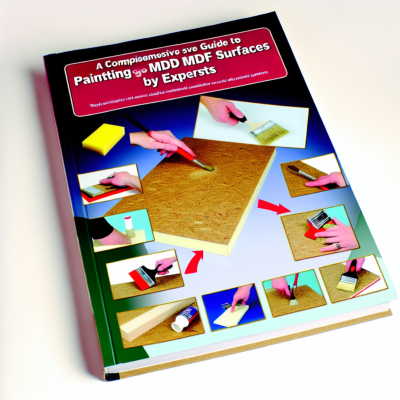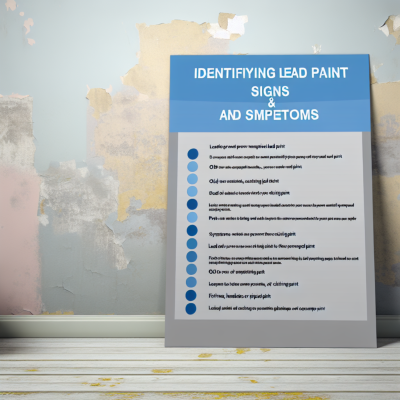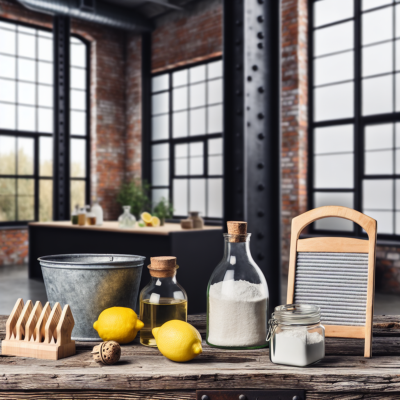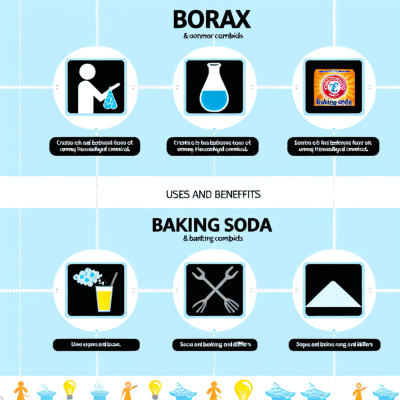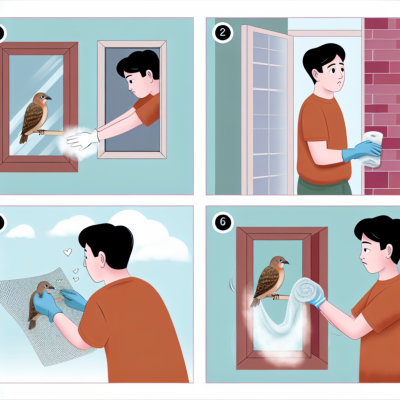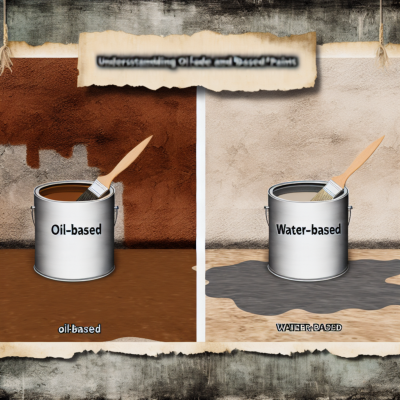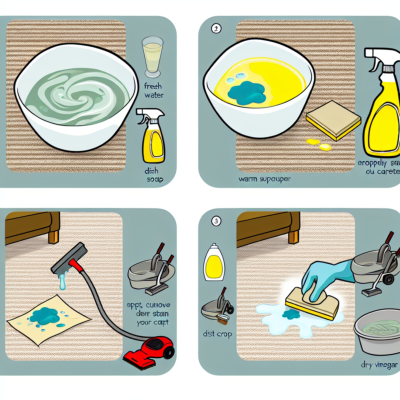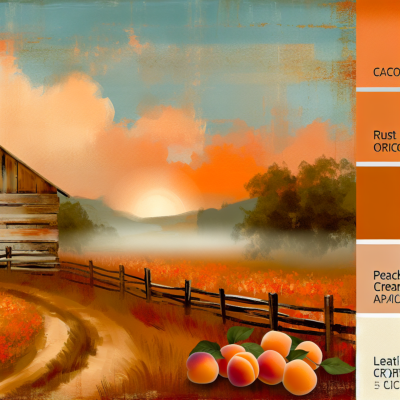The smell of fresh paint can make any home renovation project unpleasant. But armed with the right information, anyone wondering ' how to get rid of paint smell ' can banish bad paint odors. Start by opening windows, positioning fans, and ventilating rooms during and after painting. Choose low-VOC or odorless paint alternatives whenever possible. Allow extra dry time for oil-based paints that emit stronger fumes . If bad emulsion paint smell lingers, sprinkle baking soda or set out bowls of vinegar to absorb odors. With vigilance and ventilation, it's possible to get rid of gloss paint smell , tackle rancid paint smell on walls , and prevent noxious fumes . So don't let the smell of paint in house deter necessary paint touch-ups. Follow these pro tips to banish foul paint odors for good.
Painting can be a great way to freshen up your home and give it a new look. However, one downside of painting is the strong smell and fumes that can linger in your home long after the paint has dried. These odors can be unpleasant and even harmful to your health, especially if you have respiratory issues or sensitivities. Luckily, there are several steps you can take to eliminate paint smells and fumes in your home, ensuring a clean and healthy environment for you and your family.
Ventilation is key
One of the most effective ways to get rid of paint smells and fumes is to ensure proper ventilation in the painted area. Open up windows and doors to allow fresh air to circulate and push out the odors. Use fans to create a cross breeze and speed up the process. If possible, set up exhaust fans or air purifiers to further remove the fumes from the air. Ventilation not only helps eliminate the smell, but it also helps the paint dry faster, reducing the time you have to endure the strong odors.
Choose low-odor or odorless paints
When selecting paint for your home, opt for low-odor or odorless paints. These paints are specifically formulated to emit fewer fumes and have a milder smell compared to conventional paints. Look for labels that indicate low VOC (volatile organic compounds) or zero VOC, as these paints are known to have minimal to no odor. While they may be slightly more expensive, the health benefits and reduced smell are worth the investment.
Clean the air with natural remedies
If the paint smell lingers even after proper ventilation, you can use natural remedies to further eliminate the odors. Place bowls of white vinegar or activated charcoal around the painted area. These substances are known for their ability to absorb and neutralize odors. You can also try simmering a pot of water with lemon slices, cloves, or cinnamon sticks to fill your home with a pleasant aroma and mask any remaining paint smells. Additionally, houseplants like aloe vera, spider plants, and peace lilies can help purify the air and remove toxins, including paint fumes.
Conclusion
Painting your home should be an enjoyable experience, not one that leaves behind unpleasant odors and fumes. By following these steps, you can effectively eliminate paint smells and fumes, creating a fresh and healthy environment for you and your loved ones. Remember to prioritize ventilation, choose low-odor paints, and utilize natural remedies to ensure a successful paint job without the unwanted side effects.
Strategies for Neutralizing Fresh Paint Odors
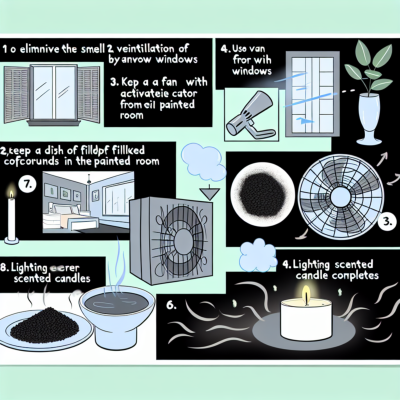
Painting your home can be a great way to freshen up your space, but the smell of fresh paint can be overwhelming and linger for days or even weeks. If you're looking for ways to neutralize those lingering paint odors, try these strategies:
- Ventilate the area: Open windows and use fans to increase air circulation in the painted space. This will help to dissipate the odor more quickly.
- Use activated charcoal: Place bowls of activated charcoal around the painted area. Charcoal is known for its ability to absorb odors and can help to neutralize the smell of fresh paint.
- Baking soda: Sprinkle baking soda on carpets, upholstery, and other fabric surfaces in the painted area. Let it sit for a few hours, then vacuum it up. Baking soda is a natural deodorizer and can help to eliminate paint odors.
- Coffee grounds: Fill bowls with coffee grounds and place them in the painted space. Coffee grounds can absorb strong odors and leave a pleasant aroma behind.
- Onions: Cut an onion in half and place each half in a separate bowl of water. Position the bowls around the painted area. Onions are known for their ability to absorb odors and can help to neutralize paint smells.
- Essential oils: Add a few drops of your favorite essential oil to a bowl of water and place it in the painted space. As the water evaporates, it will release the pleasant scent of the essential oil and help to mask the paint odor.
- Leave out bowls of vinegar: Vinegar is a natural deodorizer and can help to absorb paint odors. Fill bowls with vinegar and place them in the painted area. Leave them out for a few days to help neutralize the smell.
- Time and patience: Lastly, remember that time is often the best remedy for paint odors. As the paint cures and dries, the smell will gradually dissipate on its own. Be patient and allow the process to take its course.
By implementing these strategies, you can help to neutralize fresh paint odors and enjoy your newly painted space without the overwhelming smell.
How do you get rid of newly painted smell?
Getting rid of the smell of fresh paint can be a challenge, but there are several methods you can try to help eliminate the odor:
1. Ventilation: Open windows and doors to allow fresh air to circulate throughout the room. Use fans or exhaust fans to help speed up the process.
2. Charcoal: Place bowls of activated charcoal around the painted area. Charcoal is known for its ability to absorb odors and can help neutralize the smell of paint.
3. Baking Soda: Sprinkle baking soda on the painted surface and let it sit for a few hours before vacuuming it up. Baking soda can help absorb odors and freshen the air.
4. Onions: Cut an onion in half and place it in a bowl of water. Leave the bowl in the painted area overnight. Onions are known for their ability to absorb strong odors.
5. Vinegar: Fill bowls with white vinegar and place them around the painted area. Vinegar is a natural deodorizer and can help neutralize the smell of paint.
6. Coffee Grounds: Fill bowls with coffee grounds and place them in the painted area. Coffee grounds can help absorb odors and leave a pleasant scent behind.
Remember to be patient, as it may take some time for the paint smell to fully dissipate. Additionally, always follow the manufacturer's instructions for proper ventilation and safety when using any of these methods.
What can you add to paint to reduce smell?
If you want to reduce the smell of paint in your home, there are a few things you can add to the paint to help minimize the odor. Here are some options:
- Add vanilla extract: You can add a few drops of vanilla extract to your paint to help mask the smell. This can give the paint a more pleasant scent and make the room smell better as you paint.
- Use essential oils: Another option is to add a few drops of essential oils to your paint. Lavender, peppermint, or citrus oils are popular choices that can help to neutralize the paint smell and leave a fresh scent in the room.
- Try odor-neutralizing additives: There are also odor-neutralizing additives available on the market that can be mixed into the paint. These additives work by chemically neutralizing the odor molecules in the paint, reducing the smell in the air.
- Use low-odor paint: If you want to avoid adding anything to your paint, you can opt for low-odor paint. Many paint manufacturers offer low- or no-VOC (volatile organic compounds) paints that have reduced fumes and odors.
- Ensure proper ventilation: Regardless of what you add to your paint, it's important to have proper ventilation in the room while painting. Open windows, use fans, or even consider using a respirator to protect yourself from any harmful fumes.
By using one or more of these methods, you can help reduce the smell of paint in your home and make the process of painting a more pleasant experience.
How long does it take for a freshly painted room to stop smelling?
When you paint a room in your home, one of the most common concerns is the lingering smell of paint fumes. The good news is that the smell will eventually dissipate, but the amount of time it takes can vary.
The duration of the paint smell depends on several factors, including the type of paint used, the ventilation in the room, and the size of the painted area. In general, it can take anywhere from a few hours to several weeks for the smell to completely disappear.
If you've used water-based or latex paint, you can expect the smell to dissipate more quickly. These types of paints have lower levels of volatile organic compounds (VOCs), which are responsible for the strong paint odor. Oil-based paints, on the other hand, contain higher levels of VOCs and may take longer to stop smelling.
Proper ventilation is key to speeding up the process of eliminating paint smells. Opening windows and using fans can help to circulate fresh air and reduce the concentration of paint fumes in the room. Additionally, using air purifiers or placing bowls of vinegar or baking soda in the room can help absorb the odors.
It's important to note that even after the smell of paint has dissipated, there may still be trace amounts of VOCs present in the air. These can continue to off-gas for several months, so it's a good idea to continue with proper ventilation and air purifiers to ensure the air is as clean as possible.
In conclusion, the time it takes for a freshly painted room to stop smelling depends on various factors, but with proper ventilation and taking the necessary steps to eliminate odors, you can minimize the duration of the paint smell and enjoy your newly painted space sooner.
Addressing Persistent Gloss Paint Fumes and Smells

If you have recently painted your home using gloss paint, you may be dealing with persistent fumes and smells. Gloss paint tends to have a stronger odor compared to other types of paint, and it can take longer for the smell to dissipate. However, there are several steps you can take to address and eliminate these fumes and smells.
First, ensure that the area is well-ventilated. Open windows and doors to allow fresh air to circulate throughout the room. You can also use fans or air purifiers to help speed up the ventilation process.
Another option is to create a DIY air freshener using natural ingredients. Mix equal parts water and vinegar in a spray bottle, and add a few drops of essential oil for a pleasant scent. Spray this mixture around the room to help neutralize the paint fumes.
Additionally, activated charcoal can be effective in absorbing odors. Place bowls filled with activated charcoal around the painted area, and let it sit for a few days. The charcoal will help absorb the fumes and reduce the smell.
If the smell persists, consider using an odor-eliminating paint additive. These additives can be mixed into the paint before application and help neutralize the odor. They are specifically designed to eliminate strong paint smells and fumes.
Lastly, if the smell continues to be a problem, it may be worth consulting a professional. They can assess the situation and provide recommendations on how to effectively address the persistent fumes and smells.
| Steps to Address Gloss Paint Fumes and Smells: |
|---|
| - Ensure proper ventilation |
| - Use DIY air fresheners |
| - Try activated charcoal |
| - Consider odor-eliminating paint additives |
| - Consult a professional if necessary |
How do you keep gloss paint from smelling?
Painting with gloss paint can leave a strong odor in your home for days or even weeks. However, there are several steps you can take to minimize or eliminate the smell:
1. Proper ventilation: Open windows and use fans to create a cross breeze in the room where you are painting. This will help to dissipate the smell and improve air circulation.
2. Use low VOC paint: Look for gloss paint that is labeled as low VOC (volatile organic compounds). These paints have lower levels of chemicals that contribute to strong odors.
3. Add odor-reducing additives: Some paint stores sell additives that can be mixed with gloss paint to reduce the smell. These products work by neutralizing the odor-causing compounds in the paint.
4. Paint in small sections: Instead of painting a large area all at once, work in smaller sections. This allows the paint to dry faster, reducing the amount of time the odor lingers in the air.
5. Use a sealing primer: Apply a sealing primer before painting with gloss paint. This will help to trap the odor and prevent it from spreading throughout your home.
By following these tips, you can minimize the smell of gloss paint and make your painting projects more enjoyable.
How do you treat inhaling paint fumes?
Inhaling paint fumes can be harmful to your health, so it's important to take proper steps to treat any symptoms you may experience. Here are some ways to treat inhaling paint fumes:
| 1. Fresh Air | Move to an area with fresh air immediately. Open windows and doors to ventilate the space and let the fumes dissipate. |
| 2. Breathing Exercises | Practice deep breathing exercises to help clear out any lingering fumes in your respiratory system. Take slow, deep breaths in through your nose and out through your mouth. |
| 3. Stay Hydrated | Drinking plenty of water can help flush out toxins from your body and alleviate any symptoms caused by inhaling paint fumes. |
| 4. Rest | Take some time to rest and allow your body to recover from the exposure to paint fumes. Avoid any strenuous activities that could further strain your respiratory system. |
| 5. Seek Medical Attention | If you experience severe symptoms such as difficulty breathing, chest pain, or dizziness, it's important to seek medical attention immediately. A healthcare professional can provide proper treatment and guidance. |
Remember, prevention is key when it comes to avoiding inhaling paint fumes. Make sure to work in well-ventilated areas, wear proper protective gear such as a mask, and take breaks to allow fresh air to circulate.
Are gloss paint fumes harmful?
Gloss paint fumes can be harmful if inhaled in large quantities or over a prolonged period of time. The fumes from gloss paint contain volatile organic compounds (VOCs) that can have negative effects on human health.
Exposure to gloss paint fumes can irritate the respiratory system, causing symptoms such as coughing, wheezing, and shortness of breath. Prolonged exposure can also lead to more serious respiratory issues, such as asthma or bronchitis.
In addition to respiratory problems, gloss paint fumes can also irritate the eyes, nose, and throat. Some individuals may experience headaches or dizziness when exposed to these fumes.
how to remove rust from stainless steel
It is important to take precautions when using gloss paint to minimize exposure to these harmful fumes. This includes ensuring proper ventilation in the painting area by opening windows or using fans, wearing a mask to filter out the fumes, and taking regular breaks in a well-ventilated area.
If you have a sensitivity to paint fumes or pre-existing respiratory conditions, it is best to avoid using gloss paint altogether or to seek professional help to ensure proper ventilation and protection.
Remedies for Bad Smells from Emulsion and Rancid Paints
If you've recently painted your home with emulsion or rancid paints, you may find yourself dealing with unpleasant odors. Fortunately, there are several remedies you can try to eliminate these bad smells and make your home smell fresh again.
1. Ventilation: The first step in getting rid of paint smells is to open up your windows and doors. This will allow fresh air to circulate and push out the odors. Use fans or air purifiers to help speed up the process.
2. Baking Soda: Baking soda is known for its odor-absorbing properties. Place bowls of baking soda around the painted areas or sprinkle it directly on the painted surfaces. Leave it overnight and then vacuum or wipe away the powder.
3. Charcoal: Charcoal is another natural odor absorber. Place a few charcoal briquettes in a container and position it near the painted areas. Leave it for a few days to absorb the smells. Replace the charcoal every few days until the odors are gone.
4. Vinegar: Vinegar is a versatile household ingredient that can help neutralize paint smells. Fill bowls with white vinegar and place them in the painted rooms. Leave them overnight or for a few days until the odors dissipate.
5. Coffee Grounds: Coffee grounds are excellent at absorbing odors. Fill bowls with used coffee grounds and place them near the painted areas. Leave them for a few days until the smells are gone. Remember to replace the coffee grounds regularly.
6. Essential Oils: Essential oils not only mask bad smells but also have natural deodorizing properties. Mix a few drops of your favorite essential oil with water in a spray bottle and mist the painted areas. You can also add a few drops to a bowl of water and place it near the painted surfaces.
7. Fresh Paint: If the paint smells persist even after trying these remedies, you may need to repaint the affected areas. Using a fresh coat of paint can help seal in any remaining odors and give your home a clean, fresh scent.
Remember, prevention is key when it comes to paint smells. Before starting any painting project, make sure to choose low-VOC or odorless paints, and ensure proper ventilation during and after painting.
How long does rancid paint smell last?
The duration of a rancid paint smell can vary depending on several factors, including the type of paint, the ventilation in the room, and the conditions in which the paint was stored. In general, the smell of rancid paint can last anywhere from a few days to several weeks.
Rancid paint is typically caused by the paint oils breaking down and becoming spoiled. This can occur if the paint is exposed to extreme temperatures or if it is stored in a humid environment. Additionally, paint that has been stored for a long period of time without being properly sealed can also develop a rancid smell.
To help eliminate the smell of rancid paint, it is important to ensure proper ventilation in the room. Opening windows and using fans can help to circulate fresh air and reduce the odor. Additionally, using odor-absorbing materials such as charcoal or baking soda can help to neutralize the smell.
If the rancid smell persists for an extended period of time, it may be necessary to repaint the area or consult a professional painter for further assistance. Overall, taking proper precautions when storing and using paint can help to minimize the chance of paint developing a rancid smell.
Preventive Measures to Minimize Paint Odors in the Future
Painting can be a messy and smelly process, but there are steps you can take to minimize paint odors in your home. By following these preventive measures, you can enjoy a fresh coat of paint without the unpleasant smell lingering for days.
1. Choose Low-VOC Paint: Volatile Organic Compounds (VOCs) are chemicals found in traditional paint that can emit strong odors. Opt for low-VOC or zero-VOC paint options, which contain fewer harmful chemicals and have minimal odor.
2. Proper Ventilation: Ensure proper ventilation in the painted area by opening windows and using fans. This will help to dissipate the paint fumes and prevent them from lingering in your home. Additionally, consider using exhaust fans or air purifiers to further improve air circulation.
3. Paint in Well-Ventilated Areas: When possible, paint in areas that have good airflow, such as outdoors or in a well-ventilated room. This will help to reduce the concentration of paint fumes and minimize the odor in your home.
4. Use Odor-Reducing Additives: Some paint manufacturers offer odor-reducing additives that can be mixed into the paint before application. These additives can help to neutralize the smell of the paint and make it less noticeable.
5. Seal Paint Cans Properly: After using paint, make sure to seal the cans tightly to prevent the odor from escaping. This will help to contain the smell and minimize its impact on your home.
6. Allow Sufficient Drying Time: Properly allowing the paint to dry will help to reduce the odor. Follow the manufacturer's instructions for drying time and avoid using the painted area until the paint is fully cured.
7. Store Paint in a Cool, Dry Place: When storing paint, make sure to keep it in a cool and dry location. Extreme temperatures and humidity can cause the paint to degrade and emit stronger odors.
By implementing these preventive measures, you can minimize paint odors in your home and create a more pleasant painting experience. Remember to always prioritize safety and follow the manufacturer's instructions when using paint products.
No one enjoys dealing with the notorious smell of paint in house during and after home painting projects. However, you don't have to simply tolerate unpleasant paint odors. By taking key steps like ventilating rooms, using fans, opening windows, and selecting low-VOC paint options, you can effectively get rid of gloss paint smell , bad emulsion paint smell , and other noxious fumes . If rancid paint smell on walls lingers, try natural odor absorbers too. With proper precautions, it is possible to paint interiors without triggering long-lasting paint smells. So don't let annoying odors deter necessary paint touch-ups. Follow these handy tips to get rid of paint smell for good.
Read more:
- How to paint aluminium
- open a can without a can opener
- mdf paint
- how to get slime out of clothes
- how to get water out of iphone
- pinata ideas
- how to get sunscreen out of fabric
- things to do in summer
- washing soda vs baking soda
- paint peeling in bathroom
- paint for upvc doors
- mould resistant paint
- painting after removing wallpaper
- things to do as a couple
- sandpaper grades
- baking soda and vinegar cleaning
- how to hack key fob doors apartment
- how to paint a garage door
- can you paint laminate floors
- oil based paint for walls
- what is emulsion paint
- how to clean gloss paint brushes
- laundry detergent substitute
- how to antique a mirror
- how to get a bird out of your house
- how to remove rust from stainless steel
- how many fixer upper families still live in their homes
- apple tablet with pen
- how to clean white fabric shoe
- painting pine furniture
- how to test for lead paint
- top selling vintage items on etsy
- best places to live in texas
- The Magnificent Waco Castle
- how to balance a ceiling fan




